by Jenny Rose | Sep 15, 2016 | Power
Since I began this blog I’ve wanted to write about boundaries, not only because I myself am trying to develop better ones, but also because it seems to me boundaries are a large part of what’s broken in our culture.
We’re all aware of headlines from all over the world about human rights, ethnic and racial struggle, politics, sexual identity, religion and war. It seems to me boundaries are a core piece in each headline; an enormously complex piece of human function and dysfunction. How do we define, understand and effectively manage boundaries — both our own and those of others? How do we manage people who consistently violate our boundaries?
Trying to organize my thoughts about this is like trying to herd cats. That being said, I can choose a starting point, so I’m going to start there and see if the subject organizes itself as I write.
I approach most subjects with a definition and curiosity about what others are saying about it. A Google search for “boundary” tells me it’s a “dividing line.”
I’ve read two articles recently about boundaries. One is written from an emotional intelligence perspective and one is about human rights, kind of a sidewise look at boundaries through the idea of respect. Both have contributed to my mental soup on this subject.
My experience is that any piece of human function or dysfunction begins with myself. Self-reflection and self-inquiry are powerful tools for me, even though I occasionally wince at what I find!
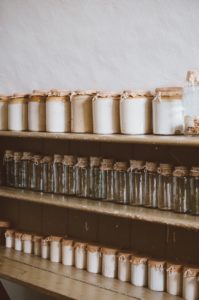
Photo by Annie Spratt on Unsplash
So, let’s play a game. Open your refrigerator, or your pantry, or your cupboard. Look at a shelf where you keep food. Everything is in a container. The container around the food is a boundary. If none of that food had boundaries around it — well, that would just be a mess.
As we start thinking about boundaries from ourselves outward, let’s take a jar of strawberry jam. It’s a glass jar with a screw top lid and it’s clearly labeled strawberry jam. Effective boundaries, it seems to me, begin with a correct identification of what’s being contained. We have to know who we are before we can create healthy boundaries, because our boundaries won’t look like someone else’s. They’re not one size fits all. You can’t keep strawberry jam in an eggshell. You don’t want raw eggs in a jar labeled strawberry jam. A can with the label torn off could still be food, but it’s hard to use it effectively.
Mislabeling happens in two directions. There are those externally who tell us who we will, should or must be (or who we will, should or must NOT be), and there are our own internal expectations of who we are and what we need. If something goes wrong right here, at the first step of boundary work, we’ve got problems.
This takes us directly back to several dynamics I’ve posted about — expectations, stories, saying yes and no, and pleasing people among them. My experience in my own western middle-class culture has been painful pressure to be who I’m expected to be, not who I really am. If this can happen to me, a straight, white, average-looking, average-sized, able-bodied, unambiguous female, then I know hundreds of thousands of people out there are being systematically emotionally and spiritually maimed in ways I can’t begin to fathom.
This opposition to knowing and being ourselves is everywhere. Capitalism is based on the idea you’re not okay as you are, but you will be if you buy…whatever it is.
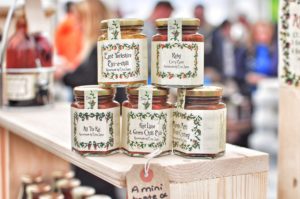
Photo by Viktor Forgacs on Unsplash
I’m strawberry jam. I’m not grape jelly, even though it’s more valuable. I’m not blackberry jam, even though it’s more attractive. I’m not raspberry jam, even though it’s more popular. Go ahead, glue a label on me that says “currant jelly.” I’m still going to be strawberry jam, and my true boundaries are a glass jar with a screw top lid and a label that says strawberry jam.
As cruel as it is, the external pressure we feel to be other than we are is not the most damaging thing. The most damaging piece is what we do internally to ourselves. I can spend my whole life with my fingers in my ears and my eyes squinched shut saying I’m peanut butter, but I’ll always be strawberry jam. Other people will know it. I’ll know it. Nothing will ever work for me because I’m in the world trying to be something I’m not. I won’t find my people. I won’t find my place. I won’t figure out and make my contribution. I won’t have effective boundaries. I won’t be happy.
Not only that, but my inability to manage and maintain effective boundaries affects everyone around me. If my jar is cracked or broken, strawberry jam is going to ooze out onto the shelf. It’ll make a mess. It’ll attract pests and predators. It’ll be wasted and it will impoverish the peanut butter, the toast, the butter and whatever else might have connected with me as strawberry jam.

Photo by Jonathan Pielmayer on Unsplash
In order to have healthy boundaries we have to know what we need. In order to know what we need we have to know who we are. Finding out who we are can be a terrifying prospect, especially if we’re captive to what other people, media, our culture, and most of all ourselves tell us we MUST be in order to get loved and find happiness, meaning and purpose.
I have made up my mind I will build better boundaries. I will figure this out. If anybody out there will walk beside me, I’ll be very pleased. I know I’m not the only one struggling with this. In fact, I don’t know anyone who doesn’t have trouble with some piece of it.
My starting point is right here, with myself. I’m strawberry jam and my boundaries are a glass jar and a screw top lid. My label says strawberry jam. I’ve no interest in forcing, persuading or coercing anyone else to be strawberry jam. I just know what I am. It might be that strawberry jam is outlawed, shunned, shamed, beheaded, tortured, raped, imprisoned, damned to Hell, unsaved, unenlightened, unlovable, unwanted, unworthy or lined up against a stone wall and shot under a hot sun. I’ll still be strawberry jam. I’m not confused and I’m not going to feel ashamed about it.
Peanut butter and strawberry jam sandwich, anyone?
All content on this site ©2016
Jennifer Rose
except where otherwise noted
by Jenny Rose | Sep 22, 2016 | Power
This is the second of I’m not sure how many posts about boundaries. See last week’s post for the beginning of the discussion!
Today the aspect of boundaries I want to explore is the one I have the most trouble with. This aspect concerns managing boundaries with people we love.
Continuing with our metaphor of food on a shelf, last week I was comfortable with my identity of strawberry jam. I know who I am, I’m in an intact container (most of the time) and I intend to be labeled accurately and effectively. That’s all INTRApersonal start-where-you-are work.
However, there’s other food on the shelf. The universe doesn’t revolve around strawberry jam, alas! In fact, next to me is a jar of dill pickles.

Photo by Viktor Forgacs on Unsplash
We’ve been together as long as I can remember, sitting side by side on the shelf. We’ve watched other food in other containers come and go. The eggs in particular have quite the turnover rate. We’re companions, friends, and in fact it’s not an exaggeration to say I love Pickles.
But one day I notice something has changed. The clear green juice in the jar with floating bits of herbs and spices is getting cloudy. And is that — could it possibly be — grey fur along one side of a pickle?
Disaster. Catastrophe. It can’t be true. My beloved Pickles is beginning to grow fur. Everybody on the shelf knows what this means. Sooner or later, the refrigerator/cupboard/shelf Gods will cull Pickles. Gone forever.
I can’t imagine my life without Pickles.
Naturally, I want to help. No kind of food could possibly want to wear grey fur. There must be something I can do.
If I love Pickles, I must be able to fix this.
If I really, truly love Pickles, and my love is real and unselfish and unconditional (and Pickles is worth that kind of love), there’s a way for my love to fix this.
If I fail to fix this, my love is at fault.
That, ladies and gentlemen, eggs and bacon, is where I lose my boundaries. It’s all very clear and self-evident when it’s laid out in black type on the page, or in this case, screen. Love can’t fix everything. Love isn’t always enough. Sometimes we can’t “help” other people. Bad things happen to good people all the time. Loss is part of love. Right?
My brain understands this. My brain functions pretty well. My brain is not the problem. It’s my heart, my emotions, my stories, my beliefs and my expectations that are unruly and stubborn.

Photo by juan pablo rodriguez on Unsplash
Perhaps I haven’t explained it well, my connection with Pickles. I know him better than anyone. I understand him. He’s the most important person in my life. He’s part of who I am. If I lose him, I’ll lose part of myself. I thought nothing could ever part us, or damage our respect and trust in one another. In fact, we’re so close we don’t need boundaries.
(Naturally, he feels the same way about me. He doesn’t say so, but one doesn’t expect pickles to emote like strawberry jam.)
Loving fully and unconditionally means no boundaries, right? Isn’t that what we learn? If we love unselfishly, completely, without reservation, then boundaries are unnecessary and we can count on getting that same kind of love in return. Loving well equals being well loved. Isn’t that the way it works? Only a selfish bitch maintains boundaries, an unloving, cold woman, a ball breaker. Only an indifferent, unfit mother maintains boundaries between herself and her children. Only a judgmental, critical, power-hungry female protects herself with boundaries. Generous, attractive, truly loving people have no need of boundaries. They don’t count the cost. They always say yes. They give freely of their resources to whoever is in need without expectations or strings attached. They never keep score. They have no needs, these lucky, healthy, beautiful, abundant people. They feed and nurture the world.

Photo by Jordan Whitt on Unsplash
Boy, does this world need people like that. That’s the kind of woman/friend/mate/mother/daughter/sister I want to be. If I want to save Pickles, that’s the kind of person I have to be.
Here’s the thing.
I can’t be that. I’m not sure anyone can be that.
I’m not talking about ideology here. I’m not qualified for or interested in religious debate. What I’m saying is I can’t be a bottomless, endless nurturer and giver with no needs, and I’m not convinced anyone else can, either. I know some who say they can, pretend they can and/or expect others to be, but I’ve never met anyone who really lives like that — at least not long term. Not successfully and not happily, anyway.
But aren’t we supposed to?
Did I learn this wrong? Did I misunderstand? I can’t point to any one person who taught me this, after all. Did I make it all up? Or, alternatively, am I not the woman I think I am and aspire to be? Am I small, mean, petty, hypocritical and selfish? Am I unable to love the right way? Am I a fraud? Am I self-deluded?
Why am I in such chronic painful confusion about something my intellect sees so clearly? Why does it seem that managing boundaries INTERpersonally carries such a negative connotation? Why can’t I reconcile loving someone with all my heart with effective, appropriate boundaries between that person and me? What is the source of this cognitive dissonance?
Which is more devastating — people who have no boundaries themselves and bitterly resent mine, or people who maintain boundaries between us when I have none?
In the first case I feel trapped, resentful and intruded upon, and in the second I feel hideously rejected, unappreciated and used. Neither feel like healthy connection, but I call both love.
So here I am, side by side with Pickles on the shelf. We look at each other through the glass sides of our boundaries. I want to climb inside his container and take him in my arms, love him back into clear green juicy health, but if I do that I’ll start growing gray fur myself, and I know I can’t fix him at the same time I believe I should be able to. I want to run away, turn away, not know what’s happening, but I can’t.
There’s nothing I can do. My love is not enough. Grey fur is creeping over Pickles and I can’t avoid it, flee it or stop it. I can only wait and watch and sit here in my container, while Pickles sits in his.
RIP, Pickles.
All content on this site ©2016
Jennifer Rose
except where otherwise noted
by Jenny Rose | Mar 30, 2024 | A Flourishing Woman, Self-Love
When I wrote about internal locked rooms earlier in the month, I had no idea how much there would be to unpack. In subsequent discussions about locked rooms and unconditional love (for a connect-the-dots map go here) a friend tells me she believes trusting herself is the biggest barrier for her in unconditionally loving herself. Me being me, I asked her how we define trust. In asking her I asked myself.

Photo by Jonathan Simcoe on Unsplash
Here we go again.
Trust is defined by Online Oxford Dictionary as “firm belief in the reliability, truth, ability, or strength of someone or something.”
Trust is a tricky subject for me and I’ve so far avoided taking it head on, but this feels like the right time. Part of my hesitation to talk about it is my own identity as a person who doesn’t trust easily.
I feel that piece of identity as a shameful aspect of my character. As I write this, I have a vivid childhood memory of being in the back of a dim car in a blinding snowstorm feeling scared. An adult in the car was also fearful, as were the family dogs. The driver asked me, “What’s the matter, don’t you trust me?”
The answer clamored inside the car, “NO!” For a moment it seemed to me we’d all shouted it, though nobody said a word and I huddled, frozen with fear and not daring to speak, in my corner.
It’s bad not to trust; disloyal, unloving, unnatural. But I learned very young trusting those around me was dangerous. All my life I’ve been torn between my shame about not trusting and a determination to survive and learn to self-defend … which sometimes (often?) means not trusting.
I don’t see trust as a black-and-white belief. I might trust someone completely with money and business affairs, but not at all as a confidant. I might trust someone as a parent but not as a dog walker. I might trust someone’s essential goodness but not their reliability in following through on plans.
This question of trusting ourselves, though, is slightly different. What does it mean, exactly, to not trust ourselves? What do I mean when I say it to myself?
Trust is defined as a belief, and beliefs can and do change. Belief is a choice. My belief that I’m untrustworthy is not something I was born with, but something I internalized from my family. I’m untrustworthy because I’m dramatic, I struggle with math story problems, I have needs and feelings, I’m intuitive, I’m sensitive, I have boundaries, I challenge authority and rules, and I tell the truth, among many other reasons.
Internalized voices are a bitch, because we don’t realize or remember they came from someone outside us.
And people outside us lie. People outside us can never fully see what’s inside us. People have agendas, their own wounds and trauma, and navigate around their own internalized bullshit.

Photo by Cristian Newman on Unsplash
People outside us are not necessarily reliable sources about our worth and value as a human being.
If trust is a “firm belief in the reliability, truth, ability, or strength of someone or something,” we have specifics we can explore.
Reliability: I know myself to be reliable. I have many flaws, but my integrity is strong and I keep my word to myself.
Truth: A thorny aspect of trust. I wrote two paragraphs here about the ways in which others perceive my truthfulness. On edit, I realized none of that has to do with my truthfulness with myself, which will always be invisible to the outside world. Do I trust my truthfulness with myself? Yes. Absolutely.
Ability: This is my weakest area of self-trust. In some ways. At some times. I wrestle every day with imposter syndrome. On the other hand, I absolutely trust my ability to write, to teach, to swim, to dance, and to do many other things. Oddly, though I trust my ability in most cases, I don’t want others to trust my ability because I have a huge fear of disappointing people. This, too, is an old wound, first opened when I received constant messaging about how disappointing and inadequate I was as a child. Because of that, I don’t want people to rely on me for fear I’ll let them down, not from my perspective, but from theirs.
I told you trust was tricky for me.
Strength: Which brings me to strength. This, for me, is a no-brainer. I have absolute belief in my own strength. God knows I wouldn’t be sitting here at the keyboard typing if I hadn’t been strong all my life.
Given this mostly positive review of the components of this definition of trust, what’s the problem? Why have I so consistently mistrusted myself during my lifetime?
I can easily come up with two reasons. There may be more lurking in the background, but these two are in front: One is trust in my physical body, and the other is perfectionism.
Perfectionism is one of the first things I wrote about on this blog. It’s another piece from my childhood I’ve struggled with it all my life, and I’m certainly not the only one. I’m conscious of it now, which is helpful, but it affects every day of my life and if I’m not mindful it rules me. Publishing this blog was one of my first real efforts at resistance. It took more than a year of weekly publishing to stop feeling panic as I pushed the “publish” button after a reasonable amount of writing and editing.
Even as perfectionism drives me, I’m aware enough to know I can’t define it beyond pleasing people. Which is impossible, and I know that. Yet the internal pressure to be perfect seems to be inescapable.
I’ve also written extensively about expectations. As a child, I was expected to be perfect according to conflicting expectations from three adults on whom I was dependent. Needless to say I failed to please any of them, which meant I lived in a constant state of shame and fear of abandonment. A perfect setup for internalized self-loathing. The road from self-loathing to considering unconditional self-love has been an amazing journey.
I was aware, as I explored ability, reliability, truth, and strength above, of a little voice in my head saying, “Yes, but—,” a precursor to the time I was late, or forgot an appointment, or the occasions I did deliberately lie, or the times I felt weak, or when my ability did not live up to my own unconscious standards of perfectionism.
As I became aware of this, I realized I will never trust myself if I aspire to be perfect in these four categories. I have never been perfect, I am not perfect, I never will be perfect, and I’m not much interested at this point in my life in attaining perfection in any way.
So fuck off, perfectionism. I’m not your bitch anymore. AND you will not stop me from loving myself, unconditionally or otherwise. Unconditional love is not built on some ridiculous set of expectations.

Photo by Emma Backer on Unsplash
Which brings me to an interesting insight on my relationship with my body. Let’s not do the body-as-a-political-signal thing, OK? I’m sick of it. We all live in a body. We have baggage about how our bodies look and function. We’re pressured, every day, to try to buy a “better” body, especially children. In today’s world, many of us feel we “should” be different, no matter what we look like. Currently, we’re obsessed with appearance and virtue signaling rather than health and function.
I don’t hate my body. However, due to autoimmune issues and years of chronic pain, I haven’t trusted it. Until the last ten years or so, since I’ve gone carnivore, my physical state was extremely limiting; I was unable to engage fully in activities I loved, get regular exercise, or even reliably manage the activities of daily living without severe pain.
Now I have my inflammation under control, my chronic pain is gone, and I’m able to joyfully live the kind of active lifestyle I’ve always wanted: gardening, walking, swimming, water aerobics, free weights, stretching, a little yoga, a little Pilates, a little time in the gym. I’m healthier and more active than I’ve ever been, but I am aging, and as I age, my body is changing. (Big surprise, I know!) I noticed, in my post about unconditional self-love, some of the things I wrote about unconditionally loving were physical things. In this culture, nobody tells us to love our varicose veins, or our age-spotted hands, or our lined neck. Instead, we’re encouraged to buy something and “fix” all those problems, or at least hide them.
That’s not unconditional love. (I also deny it’s “body positivity,” but I don’t want to dive into that rabbit hole!)
I know if I push myself too hard my body will hurt. I know if I allow my anxiety to spin out of control I won’t sleep. I know if I eat a whole pizza I will a) have inflammation and pain from the carbs and b) have severe constipation (cheese). I know if I garden for too many hours at a time I’ll be too stiff the next morning to get dressed without sitting down. I know if I spend too many hours in the pool I’ll develop eczema on my elbows and hips.

Photo by Cristian Newman on Unsplash
I ask myself, does all this mean I don’t trust my body? Because it actually sounds like I do trust it to react to my choices in various predictable ways. Is what I’m really saying I don’t trust my body to be a 20-year-old perfect body?
Well …. Yeah. I guess that is what I’m saying. Pretty silly.
My friend doesn’t feel she can unconditionally love herself without trusting herself. She’ll navigate her own path through all this. My own conclusion is I can trust myself. Perhaps I should consciously start doing so. (What an idea!) For me, lack of self-trust is not an obstacle to unconditional love, but it certainly makes a nice contribution to it.
Questions:
- Do you see trust as essential to unconditional love?
- Do you agree with this definition of trust? If not, how would you define it? Can you find a better definition?
- What aspect of trust in this definition do you struggle with the most?
Leave a comment below!
To read my fiction, serially published free every week, go here: 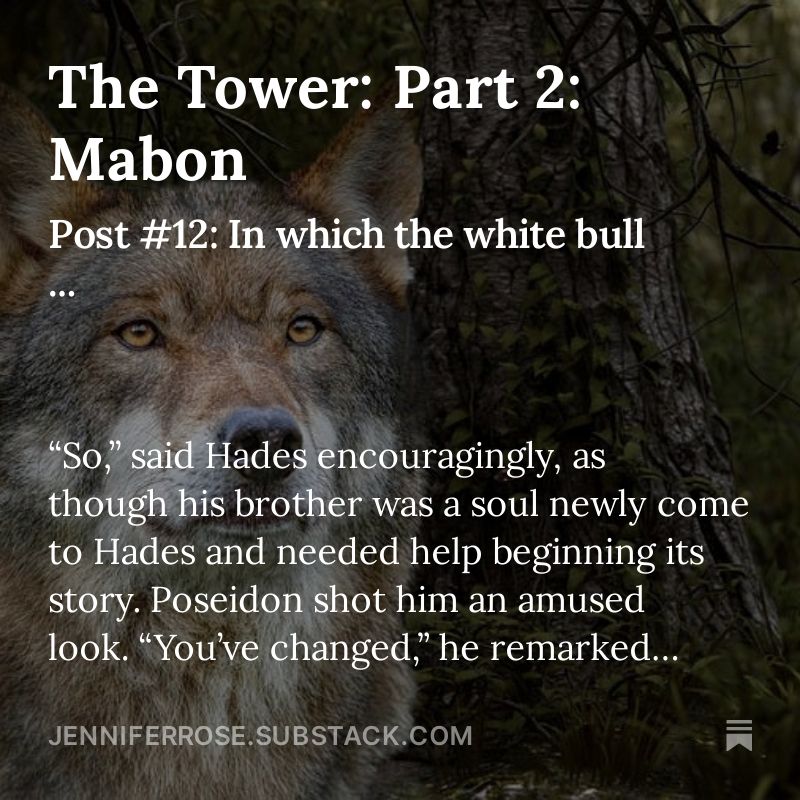
by Jenny Rose | Mar 16, 2024 | A Flourishing Woman, Mind
I’m still looking at my locked room, which I wrote about in my last post. I’ve had some interesting conversations about that post.
My emotional intelligence coach (who has now retired) used a phrase years ago when I was working formally with him: “I want everything you are and nothing you are not.”
It touched a deep, lifelong longing in me to be loved, accepted, seen in my entirety, though I know I would never allow myself to be seen in my entirety.
Through the years since, I’ve carried that phrase with me as I love and interact with those around me. Depending on my mood, it’s a ridiculous, impossible-to-achieve sentiment for any human being, cruel in its false hope, akin to rom coms. Or it’s something to aspire to, a reminder to be softer with my rigidities and expectations, quicker to forgive.
As I wrote a couple of weeks ago about locked internal rooms, it suddenly struck me in all the years I’ve been thinking about that phrase I never once said it to myself. I’ve been focused on my grief and shame about never being good enough to find that kind of love from another human being, or on my suspicion that none of us can honestly say that to one another. Not day after day in the long term.

Photo by Ryan Moreno on Unsplash
Over the last decade or so I’ve slowly, agonizingly, stopped hoping a prince on a white horse would show up who would love everything I am, or even love part of what I am unconditionally. (But, honestly, I wanted him to love everything!) I’ve turned more and more towards meeting my own needs for intimacy and connection, realizing the pain of disconnect is from within myself, not external. I want unconditional love. It’s not a feeling I have any power to make others feel.
Unconditional love towards myself, however, is a minute-by-minute challenge in which I have all the power.
Now, that’s a thought.
Extending unconditional love to myself is hard. I would a thousand times rather love someone else and dream of Mr. Right, except I know how that ends … and frankly, I’m bored with it. In fact, it occurred to me a couple of days ago I’m really not interested in Mr. Right anymore. Or Mr. Wrong. Or Mr. Anybody, romantically speaking. I’ve been smiling about that realization ever since. It’s oddly freeing. I watch women in my age cohort with their husbands/significant others where I work in a pool rehab center and think, “Better you than me, sister!” And smile some more. An enigmatic lifeguard smile (I hope).
The whole idea of romance doesn’t fascinate me anymore unless it’s strictly fantasy. Repairing and healing my relationship with myself is far more interesting. This refocus may be the greatest gift of menopause. I know some women grieve over it, but for me it’s freedom from what was frequently an overwhelming, stressful, and complicated biological imperative. Whew.
Is it possible for us to love ourselves unconditionally? Is it possible for me to do so?
What a question! A question leading straight back to my locked room.

Photo by John Salvino on Unsplash
I can’t love everything I am and nothing I’m not if I don’t know everything I am. If I don’t want to know. If I refuse to find out.
(Item: in my last Tarot spread for Imbolc I drew the Sea: Plumbing the Depths card.)
Now, like all of us, I have acceptable (to me) qualities and traits and unacceptable ones. I’m a mishmash of genetic inheritance and learned behavior. I’m a hot mess and I’m reasonably competent and effective. Sometimes all at the same time!
And I’m supposed to unconditionally love that?
Well, yes. That’s what unconditional love is, right?
I have a varicose vein popping up. I’m deeply insulted. WTF? I’m supposed to love that? I’m supposed to love the genetic inheritance/sun exposure/years of chronic pain that caused me to be sedentary/and other factors in the tired, bulging, blue-violet vein in my lower leg? What about the foot I’m pretty sure I’m developing a touch of arthritis in? What about my aging neck? What about my age-spotted hands (more sun exposure)?
And that’s just the beginning. I’m supposed to love the roots of my perfectionism, my speeding, my anxiety? Well, not the roots, but the child who was traumatized and developed those mechanisms to survive? (And did survive, let’s not forget.)
Romantically speaking, it’s easy to love white horses, roses, diamonds, champagne, sexy exotic vacations (none of which I find especially romantic, but you know what I mean!). I can love my competence, doggedness, creativity, integrity, ability to support others, and many other fine qualities (if I do say so myself). But the aches and pains, sleepless nights, endless loops of anxiety, tendency toward depression, rigidity, fawning, inept healthy boundaries and self-advocating – these are not lovable. These are a pain in the ass.
I am a frequent pain in my own ass.
Can anyone relate?
As for mistakes (I turned out the ladies’ locker room light while someone was still in there last week when we closed the pool!), shameful thoughts and feelings, dire deeds I wish I could forget, habitual catastrophizing, hurt I’ve inflicted on others, parenting mistakes, and a host of other miserable dead bodies in my locked room, unconditional love means I love those, too. It means I love my fallible, aging, flawed, exceedingly human self. All of it. All of me.

Photo by Cristian Newman on Unsplash
It makes me want to permanently lose the keys to my locked room.
Then there’s the “nothing I am not” part of the equation. Boundaries again. I’m so tired of working on boundaries. On the other hand, having no boundaries makes life not worth living, so I persevere. “Nothing I am not” includes what I was taught about myself and my role in my family as a child; false and limiting beliefs; my endlessly carping, nitpicking, internal critic; fear; despair; depression; anxiety; etc., etc. We carry so many burdens, and many of them never belonged to us in the first place. We took them upon ourselves, or someone forced them upon us, or we accepted them in order to ‘help’ someone else. Some are simply old coping mechanisms allowing us to survive our hard times but now outdated and useless.
At the end of all this, I wonder if our locked rooms are just another challenge in love. How much of ourselves do we shut away because we can’t love all of what we are, and we’re certain others couldn’t love us if they knew what was behind the door?
In the case of storing experience too horrific to manage, such as deep trauma, grief, or guilt, don’t those feelings need unconditional love most of all? The locked room itself, however we envision it, however we envision its door, is surely deserving of love too. It allows us to continue to function in life in spite of terrible experiences. It gives us respite, a way to pause, a way to give ourselves time to gain distance, wisdom, grow into new skills and learn how to help ourselves if and when we do crack the door open. It allows us to stay safe and sane.
For me, a choice to practice loving everything I am and nothing I’m not means I’ll be opening the door to my locked room and poking around in there. Now I’m curious. Could I at least consider loving what I find?
I’m considering it. Carefully.
Questions:
- What do you love about yourself?
- What do you have to do, be, or stop doing to earn your own love?
- Do you think more about finding someone to love you or practicing self-love?
- What if finding “true love” is impossible unless we love ourselves fully first?
Leave a comment below!
To read my fiction, serially published free every week, go here: 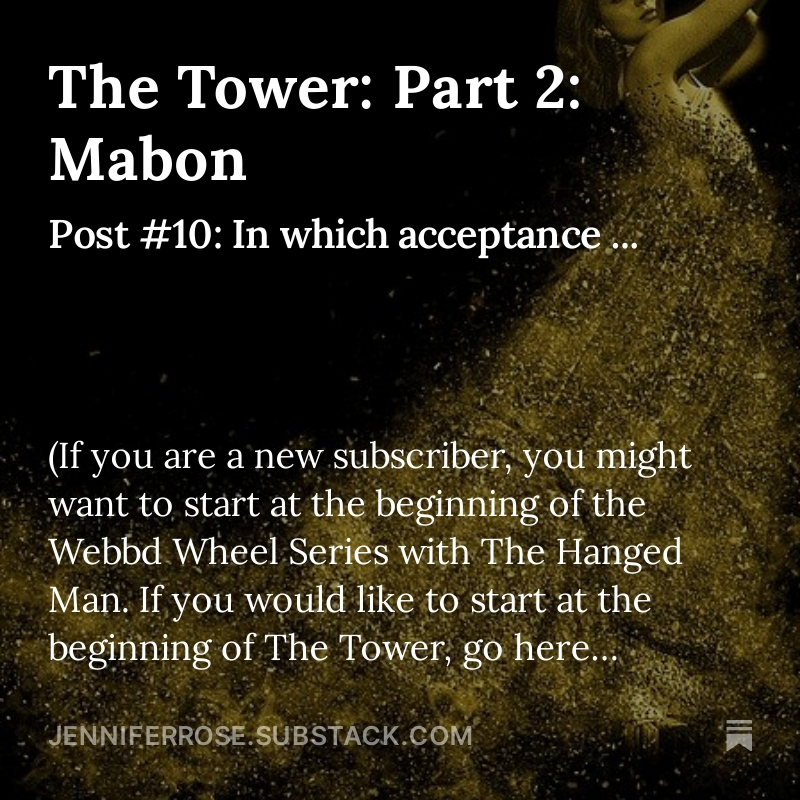
by Jenny Rose | Jan 6, 2024 | Aging, Connection & Community, Emotional Intelligence
I’ve been resting in this pause between solstice and the new year. Although I made a conscious choice to set aside everything I could, it was uncomfortable to let this blog lie fallow. On the other hand, I have not been inspired to do much more than manage day-to-day life.
I’m grateful to have moved into new holiday routines after decades of feeling imprisoned by obligation and duty to my fractured family and making Christmas meaningful and fun for my children. Gone are the days of huge, exhausting meals, tight schedules, trying desperately to please everyone at my own expense, spending much of the holidays in the car traveling between homes, and tired, overstimulated children. Not to mention tired, overstimulated me.
Now I focus on Yule, on the deep, introspective peace of winter and long nights, withdrawing into my cozy home. I engage in rituals I love: candles, simple decorating, making a double batch of Spritz cookies with my cookie press to share, and welcoming the return of the light.

Photo by David Monje on Unsplash
This year we had a tropical storm the week before Christmas with high winds and torrential rains that flooded our town and, indeed, the whole state. We were without power for 48 hours. The lack of electric light (or electric anything else) fit in well with Yule, though we got very cold. We were also trapped; every bridge in the area was closed and the Kennebec River, which winds through our town, rose 30 feet, which is 15 feet above flood stage. Between flooding and downed trees, we were unable to leave our immediate neighborhood. Most businesses closed. The ones that stayed open (with generators) quickly ran out of everything. Our neighbors loaned us a butane camp stove so I could heat water for hot drinks.
As soon as the power was restored I ordered a propane camp stove.
Life rolls along, whether I’m posting or not.
This morning, as I lay in bed waking, I heard snow plows in our neighborhood. We’ve had more rain here, and clearly sometime during the night it had changed to snow. As I moved around the kitchen, watching the sky lighten and the snow fall, cooking breakfast, sipping my first cup of tea, enjoying glowing candles, my thoughts drifted.
Impossible to avoid end-of-year lists and reviews and new year resolutions, hopes and fears this time of year. I generally am uninterested. I’m content to let the old year diminish and recede, particularly this one, which was especially difficult personally. I don’t enjoy new year resolutions, mine or anyone else’s. None of us know what the new year will bring and many of us look ahead with some trepidation and anxiety; I don’t need to exacerbate mine by making or consuming predictions. What will come will come and we’ll have to cope with it.
I will be 60 this month. Impossible. Incredible. For the first time in my life, I’m daunted by a birthday. Generally, I hardly notice them. I’m annoyed by my discomfort this year. I’m determined not to focus on it, but I keep seeing it out of the corner of my eye.
I asked myself a question as I moved around the kitchen this morning. If I could have anything for my birthday, if I could make one intention for the year ahead, what would it be?
It’s easier to think about what we don’t want, isn’t it? I reviewed my current challenges and anxieties, watching the pewter sky and the snow becoming less rain and more flakes as the temperature dropped. I flipped the bacon, gave the cats another half a can of food so they would get out from under my feet. The pipes in the radiators creaked and popped as the furnace turned on.
The word ‘simplicity’ came into my mind. I turned it over. I thought about what brings me joy. I thought about candles, reading a good book, the warmth and weight of a cat in my lap. I thought about a cup of hot tea. I thought about music, the rhythm of swimming, being with people I love and trust. Sitting in my comfortable chair with my weighted blanket, just breathing. Peace. Stillness. Light and shadow. Long nights. My warm bed. Hot showers. Solitude. Privacy. I thought about my current laptop background. A perfect illustration of simplicity:
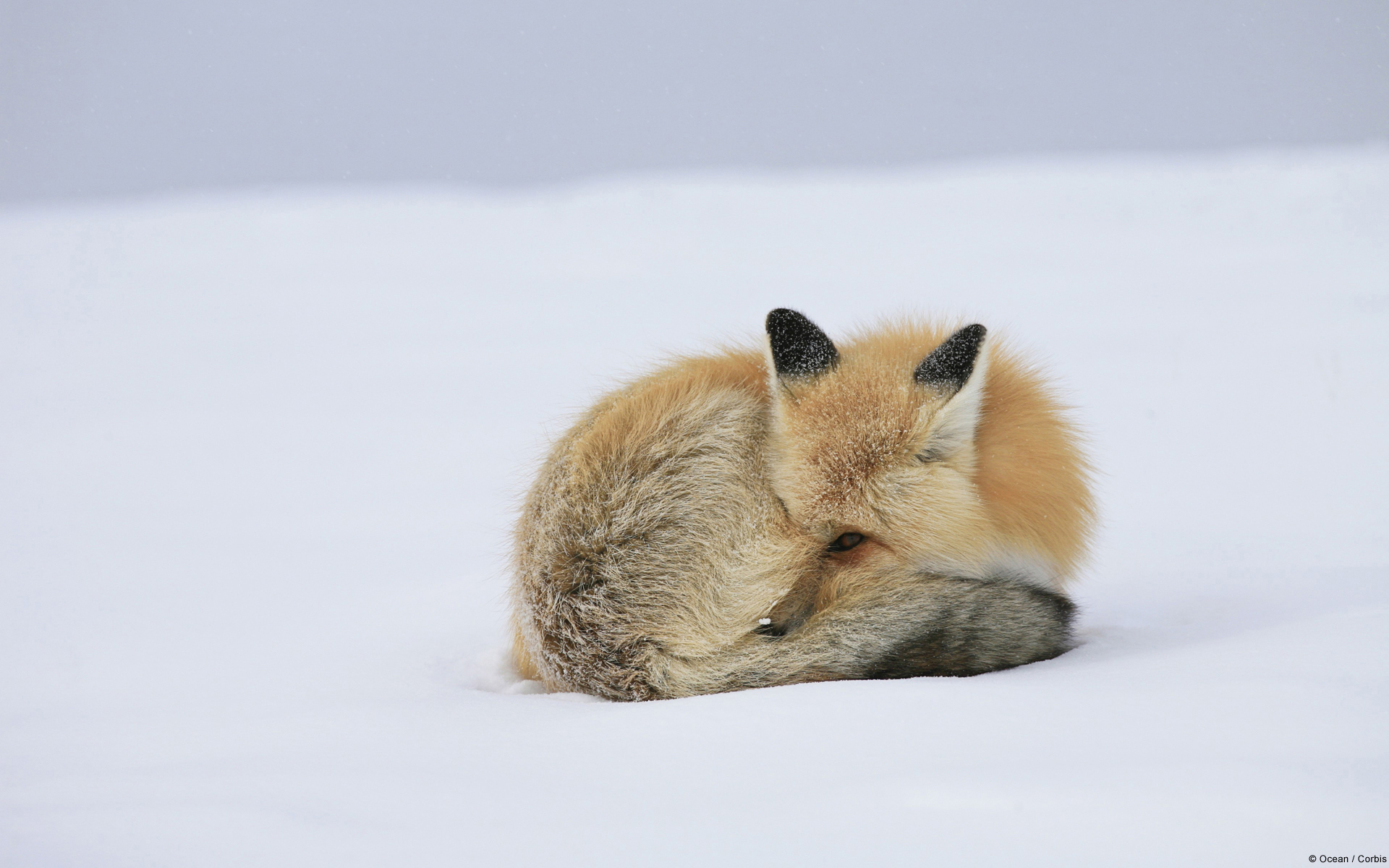
I thought about what I don’t want. The endless complications of being nice, pleasing others, fawning to stave off violence and pain. Clutter. Bright lights, noise, demands. Busyness. Obligation. Duty. Feeling hounded, imprisoned, criticized, judged by myself and others. Too much talk. Racing the clock.
I thought about boundaries. Inconsistent boundaries, badly maintained, easily breached; and strong, smooth, tough boundaries, well-maintained and consistent. Unapologetic.
I thought about the simplicity of ‘No’ and the complications of ‘No’ followed by five minutes of cringing apology and justification, or the inability to say ‘No’ at all.
‘Simplicity’, I decided, named my longing.
When I consider the first 60 years of my life I mostly see the unending labor and anguish of caring for others, the years of trying and trying, as only a woman who loves can understand, to love them all. To please them. To make them happy and healthy. It was complicated. Noisy. Chaotic. Bloody. Painful. Extremely expensive in terms of my own health and happiness.
And frequently thankless. Rarely reciprocated.
That’s what I thought I was for, to live that way. I was taught that was what I was for.
In the last few months I came across a little mantra which has become something like a prayer permanently nestled in my consciousness:
I am enough.
I choose my life.
I trust myself.
Sixty is a nice, round number. How would it be if I chose to begin again, now, with just myself; my own self-care, which is simple and easy? What if I chose to embrace the discomfort and power of maintaining strong, consistent boundaries and let people react to them however they need to, making their feelings none of my business? What if I stopped apologizing for what I need because it’s not what they need or understand or want?
What if I made up my mind to choose the simplest thing, the most direct, honest answer, the clearest communication in any given situation? What if I stood up for myself the way I stand up so readily for others?
Maybe 60 years of responsibility for everyone around me is enough and I could choose to spend the next 60 years (!) being responsible only for myself.
What a relief!
I don’t tell myself living more simply will be easy. It won’t. Boundaries, (I’m never allowed to forget) are invariably heavily challenged and battered by those who have the most to gain by us having none. Maintaining boundaries means conflict, a thing I dread and have always avoided as much as possible. It means emotional manipulation, the most painful (and successful) weapon those close to me can wield against me. It means Failing To Please. It means controlling my natural empathy, focusing it inward rather than outward, being more present with my own internal state rather than that of others.
Simplicity. What a lovely intention.

Photo by Das Sasha on Unsplash
Here’s a deep winter wish for you all:
May You Grow Still Enough
May you grow still enough to hear the small noises earth makes in preparing for the long sleep of winter, so that you yourself may grow calm and grounded deep within.
May you grow still enough to hear the trickling of water seeping into the ground, so that your soul may be softened and healed, and guided in its flow.
May you grow still enough to hear the splintering of starlight in the winter sky and the roar at earth’s fiery core.
May you grow still enough to hear the stir of a single snowflake in the air, so that your inner silence may turn into hushed expectation.
by Brother David Steindl-Rast
Questions:
- How did you spend your holidays? Did you spend them the way you wanted to or the way you had to?
- How do you feel about new year’s resolutions?
- What single word names your deepest longing?
- In your view, how do self-care and selfishness differ?
Leave a comment below!
To read my fiction, serially published free every week, go here:
















